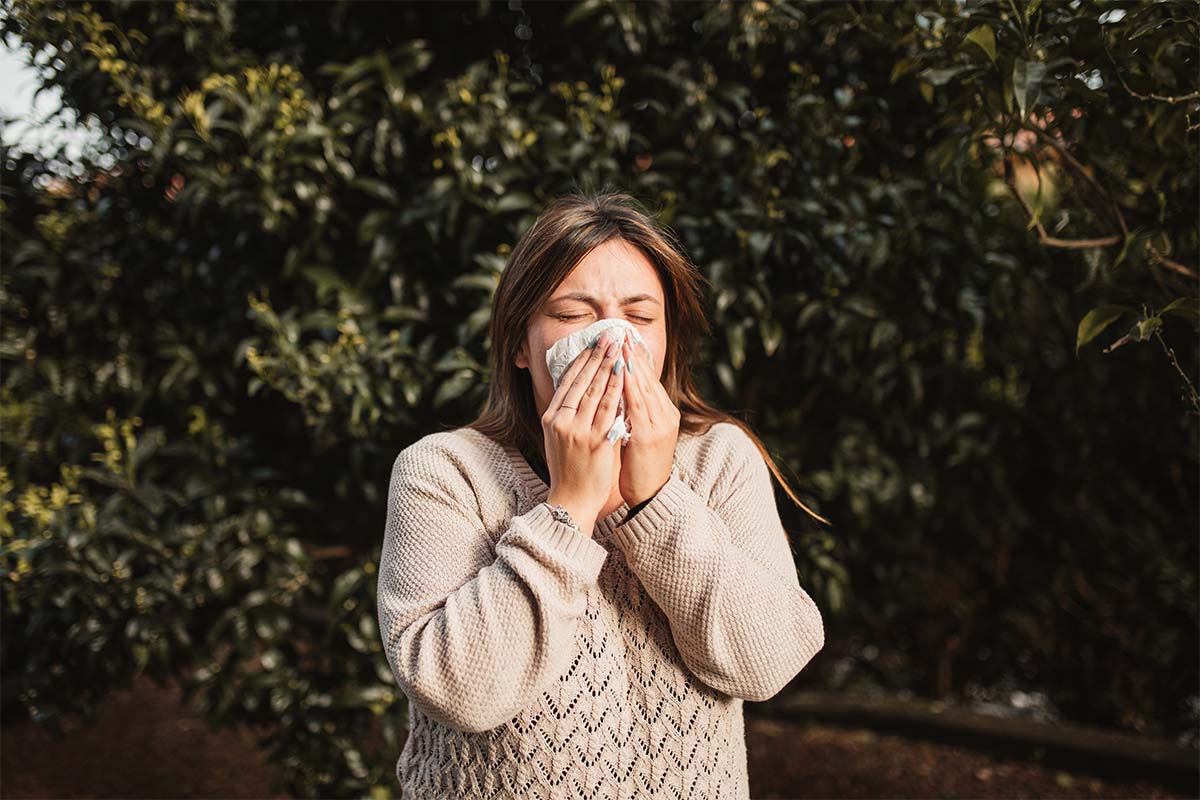
Last updated:
Bees are buzzing, magpies are swooping, and some of us are
sneezing. A lot. Welcome to hay fever season.
Hay fever is also called allergic rhinitis. As the name suggests, it’s an allergic reaction to environmental
factors (called allergens) such as pollens, dust mite, moulds and animal hair1. When these allergens find their way
to the nose or eyes, an immune response is triggered. The nasal passages become inflamed and excessive mucus is
produced, causing sneezing and a runny nose.
The allergens can affect other areas as well. If they get in the eyes, they can become red, itchy or watery. The
nose, throat and even the ears can become itchy. Severe cases can cause headaches and a general feeling of being
unwell. Concentration and sleep can also be affected.
Spring is peak pollen season
Hay fever can affect people any time of the year, but spring is when a lot of sufferers start to reach for the tissue
box.
Trees, grasses and shrubs are often in flower and spreading their pollen. Some spread their pollen by
insects or animals, but it’s the wind pollinating plants that cause the greatest discomfort to hay fever
sufferers.
"Pollen allergies can be worse on hot, dry days when the wind carries the pollen,” says Pharmacy 777 Pharmacist
Lee Ross.
"Tree pollen is more common in the early spring, while grass pollen is more common in late spring and summer,” says Ross.
Depending on your level of discomfort, there are some effective ways to manage hay fever.
-
Avoid the triggers
Avoiding hay fever triggers is a way to manage hay fever without medication.
"Stay indoors particularly during pollen season and on windy days,” says Ross.
"Rinsing your nasal passages with distilled, sterile saline (nasal irrigation) is a quick, inexpensive and
effective way to relieve nasal congestion. It also flushes out mucus and allergens from your nose,” he
says.
Wraparound sunglasses may prevent allergens from getting in your eyes and showering and rinsing your eyes can also
reduce exposure to allergens.
-
Antihistamines
"Antihistamines are effective in reducing the symptoms associated with hay fever. They’re especially helpful
in reducing itching, sneezing and a runny nose,” says Ross.
Antihistamines block histamine, a chemical released by your immune system during an allergic reaction. By
blocking the body’s response to this chemical, antihistamines reduce the severity of the reaction and ease
the symptoms of hay fever.
-
Intranasal corticosteroid sprays
Intranasal corticosteroid sprays are considered the most effective overall treatment for hay fever. They contain
a low dose of steroid, which helps reduce the swelling and mucus in the nasal passageway.
However, it can take up to two weeks to get the full benefit from the treatment so intranasal corticosteroids
will not provide immediate relief from symptoms.
-
Decongestant sprays
Decongestant sprays unblock and dry the nose. Usually good for quick relief, but only for short term as they can
damage the lining of the nose.
-
Immunotherapy
If hay fever is affecting your way of life or you continuously rely on medication, immunotherapy may be a viable
treatment option. Immunotherapy involves a clinical allergy specialist repeatedly introducing small doses of
allergen extracts via injection or drops under the tongue over several years, to desensitise the body to the
allergen.
Hay fever can’t be cured but can be managed. To avoid sneezing and itchy eyes, check the weather forecast
before venturing outside. If it’s going to be a dry, windy spring day, put on your sunnies or stay inside.
Many weather websites and apps report the daily pollen count. By being prepared, you can reduce the
symptoms of hay fever and still smell the roses.
HBF health & support programs
As an HBF health member, you get access to a range of support and health programs to get you back to yourself.
Disclaimer
This article contains general information only and does not take into account the health, personal situation
or needs of any person. In conjunction with your GP or treating health care professional, please consider
whether the information is suitable for you and your personal circumstances.
Sources:
1 Better Health - Hay fever (2020)